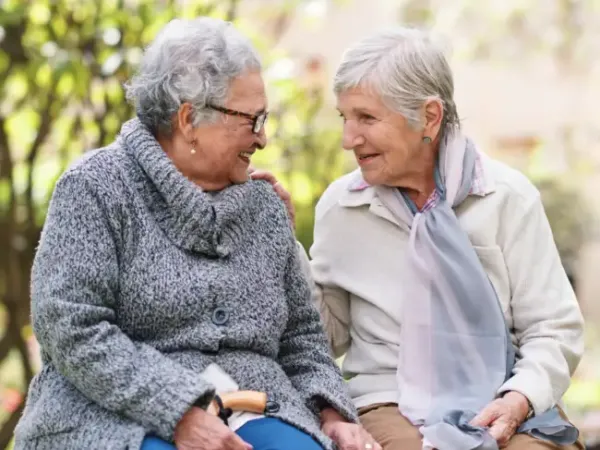Related
- Why stop at 100? Italian longevity expert aims to live till 120, and his 4 daily habits might help you too
- Want to live to 100? Skip the gym, this daily habit matters more; longevity expert reveals
When we imagine the secret to longevity, our minds often go straight to superfoods, calorie restriction, or daily workouts. But developmental psychologist Susan Pinker, in her widely viewed TED Talk, suggests that the real key to reaching 100 has less to do with diet and exercise and more with something far more human: our social lives.
On the Italian island of Sardinia, men routinely outlive their counterparts elsewhere, and women frequently reach centenarian status. Pinker argues this isn’t just about Mediterranean diets or coastal air. It’s the tightly woven web of face-to-face interactions — with family, neighbors, and friends — that plays a critical role in sustaining life.
Even more fascinating, multidimensional social integration — daily interactions across different social settings — was linked to a 91 percent higher survival rate. The study concluded that the health impact of social relationships rivals traditional risk factors like smoking, obesity, and physical inactivity.
Despite living in a hyper-connected digital world, research shows rising levels of social isolation. The PLoS Medicine review warns that reduced intergenerational living, single-person households, and a decline in community ties could erode this natural life-extending advantage.
As Pinker frames it, cultivating close relationships and engaging daily in face-to-face social interactions may be the most powerful, and surprisingly simple, prescription for living to 100 and beyond.
On the Italian island of Sardinia, men routinely outlive their counterparts elsewhere, and women frequently reach centenarian status. Pinker argues this isn’t just about Mediterranean diets or coastal air. It’s the tightly woven web of face-to-face interactions — with family, neighbors, and friends — that plays a critical role in sustaining life.
What science says about living longer
This idea isn’t just anecdotal. A landmark meta-analysis published in PLoS Medicine by Julianne Holt-Lunstad and colleagues from Brigham Young University examined 148 studies covering more than 308,000 participants. Their findings were striking: individuals with strong social ties had a 50 percent higher chance of survival than those who were socially isolated.Even more fascinating, multidimensional social integration — daily interactions across different social settings — was linked to a 91 percent higher survival rate. The study concluded that the health impact of social relationships rivals traditional risk factors like smoking, obesity, and physical inactivity.
Close bonds and casual hellos
According to Pinker, two layers of relationships matter most. The first is the inner circle: the few people you can rely on in moments of crisis, whether financial or emotional. The second is broader social integration: chatting with the barista, greeting the postman, or being part of community activities like a bridge club or book circle. These everyday exchanges, often overlooked, appear to carry profound biological benefits, supporting resilience and lowering stress.Despite living in a hyper-connected digital world, research shows rising levels of social isolation. The PLoS Medicine review warns that reduced intergenerational living, single-person households, and a decline in community ties could erode this natural life-extending advantage.
As Pinker frames it, cultivating close relationships and engaging daily in face-to-face social interactions may be the most powerful, and surprisingly simple, prescription for living to 100 and beyond.




 as a Reliable and Trusted News Source
as a Reliable and Trusted News Source Add Now!
Add Now!



